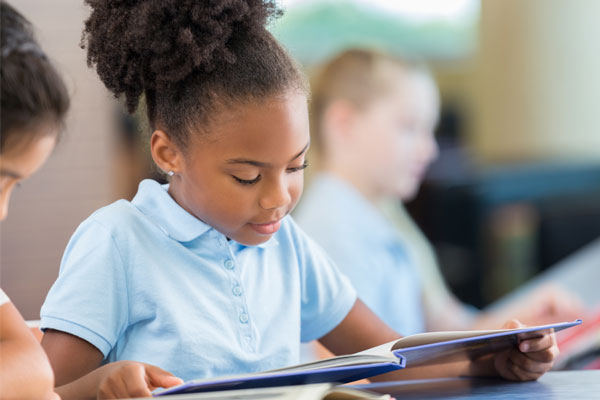Discovering the Best Remedial Schools in Johannesburg for Your Kid's Demands
Discovering the Best Remedial Schools in Johannesburg for Your Kid's Demands
Blog Article
Identifying How Remedial Schools Act As Important Resources for Trainees Requiring Extra Aid to Achieve Their Academic Goals
Restorative schools play a critical duty in the instructional landscape by supplying targeted assistance for pupils who call for additional assistance to meet their scholastic goals. By resolving specific educational spaces, restorative schools not only objective to enhance scholastic performance but likewise to bring back trainee confidence.
Comprehending Remedial Schools
Understanding restorative institutions is critical for acknowledging their function in resolving academic differences. These establishments function as vital instructional resources for trainees that battle to fulfill basic scholastic criteria. Remedial institutions concentrate on providing targeted assistance to people who might have dropped behind as a result of numerous elements, consisting of finding out impairments, socioeconomic difficulties, or inconsistent schooling experiences.

Additionally, remedial colleges commonly employ specialized instructors educated to deal with varied understanding demands, ensuring that instructional methods are tailored per pupil's one-of-a-kind difficulties. This focused method not just assists trainees capture up academically however additionally promotes a sense of belonging and motivation.
Tailored Learning Approaches
Customized learning techniques are essential in restorative education and learning, as they resolve the special demands of pupils who need additional support. Unlike typical educational setups that typically utilize a one-size-fits-all approach, remedial colleges prioritize individualized instruction. This personalization enables educators to concentrate on certain locations where students struggle, promoting a more efficient learning experience.
These approaches utilize different strategies, including differentiated direction, which adapts content and training techniques to satisfy specific learning styles and paces. For example, aesthetic learners may profit from graphic coordinators, while auditory learners could involve better with discussions and verbal descriptions. In addition, little course sizes in restorative setups promote a more customized atmosphere, enabling for meaningful interactions in between pupils and teachers.
Furthermore, customized learning techniques typically include continuous assessments to keep track of pupil development and readjust strategies accordingly. This flexibility makes sure that the instructional interventions continue to be relevant and reliable, promoting a deeper understanding of the product. By reacting and identifying to each trainee's distinct difficulties, therapeutic institutions create a supportive environment that encourages learners, eventually guiding them toward attaining their academic objectives.
Advantages of Specialized Guideline
Specialized instruction in restorative colleges uses considerable advantages that enhance the academic experience for pupils dealing with academic challenges. Among the key advantages is the personalized focus supplied by qualified instructors that recognize the diverse knowing demands of each pupil. This customized approach cultivates a helpful setting where students can proceed at their own rate, permitting them to construct self-confidence and proficiency in subjects that might have previously been obstacles.
In addition, specialized guideline often includes flexible mentor methods and sources that provide to various learning styles. By using interactive products and multi-sensory techniques, educators can involve trainees better, promoting deeper understanding and retention of knowledge. This method not only addresses scholastic spaces yet also enhances important reasoning and problem-solving skills.
In addition, therapeutic schools usually create a risk-free area for trainees to reveal their struggles without fear of judgment. This psychological assistance is crucial, as it urges durability and a favorable attitude toward learning. Generally, specialized direction in therapeutic setups gears up pupils with crucial skills and methods, empowering them to accomplish their academic goals and cultivating a lifelong love for understanding.
Connecting Educational Spaces

The concentrate on individualized understanding approaches enables educators to identify and address details weak points, making certain that no student fails the fractures - remedial schools in Johannesburg. With little class sizes and individualized attention, pupils gain from an environment for discovering, which contrasts with the usually overwhelming settings found in traditional classrooms
Additionally, restorative schools employ a selection of instructional strategies that fit varied discovering designs, enabling pupils to involve with the product in manner ins which reverberate with them. Therefore, these colleges not only improve scholastic abilities however also develop self-esteem and motivation. By shutting the voids in understanding and skills, remedial schools empower trainees to proceed toward grade-level expectations and eventually accomplish their scholastic goals. This important support group is vital for cultivating equity in education and ensuring all pupils have the chance to prosper.
Success Stories and Results
Numerous success stories illustrate the transformative effect of restorative colleges on trainee outcomes. A recent case research study highlighted a pupil called Mia, who struggled with analysis comprehension in her conventional institution.
One more compelling example is that of Carlos, who faced considerable difficulties in mathematics. The remedial program supplied him with one-on-one tutoring and joint discovering chances, which were pivotal in boosting his understanding of intricate principles. Because of this, Carlos advanced to a higher-level math training course, showcasing marked improvement in both abilities and interest for learning.
These success tales are not isolated; they mirror a wider pattern of remedial colleges successfully equipping pupils with crucial scholastic abilities. The end results prolong beyond academics, cultivating individual growth, resilience, and a restored feeling of objective. Such transformations highlight the important function restorative colleges play fit the futures of find more information pupils who call for extra assistance in their educational journeys.
Conclusion
To conclude, remedial colleges play a vital duty in supporting trainees who need extra academic help. With customized learning methods and specialized instruction, these organizations effectively address private discovering needs and bridge academic gaps. The nurturing environments foster confidence and advertise meaningful interactions, leading to enhanced academic like this outcomes. As shown by numerous success stories, remedial institutions not only boost pupils' fundamental abilities but also encourage them to accomplish their academic goals, highlighting their relevance in the academic landscape.
Therapeutic institutions play a crucial role in the educational landscape by providing targeted assistance for students who need extra help to satisfy their scholastic objectives. By addressing particular educational gaps, remedial colleges not only aim to improve scholastic efficiency but also to recover pupil self-confidence.Specialized guideline in therapeutic colleges offers substantial benefits that improve the instructional experience for students dealing with academic challenges. By shutting the spaces in knowledge and skills, restorative institutions encourage pupils to proceed towards grade-level assumptions and eventually accomplish their scholastic goals.These success stories are not separated; they show a anchor wider fad of therapeutic institutions effectively equipping trainees with necessary academic skills.
Report this page